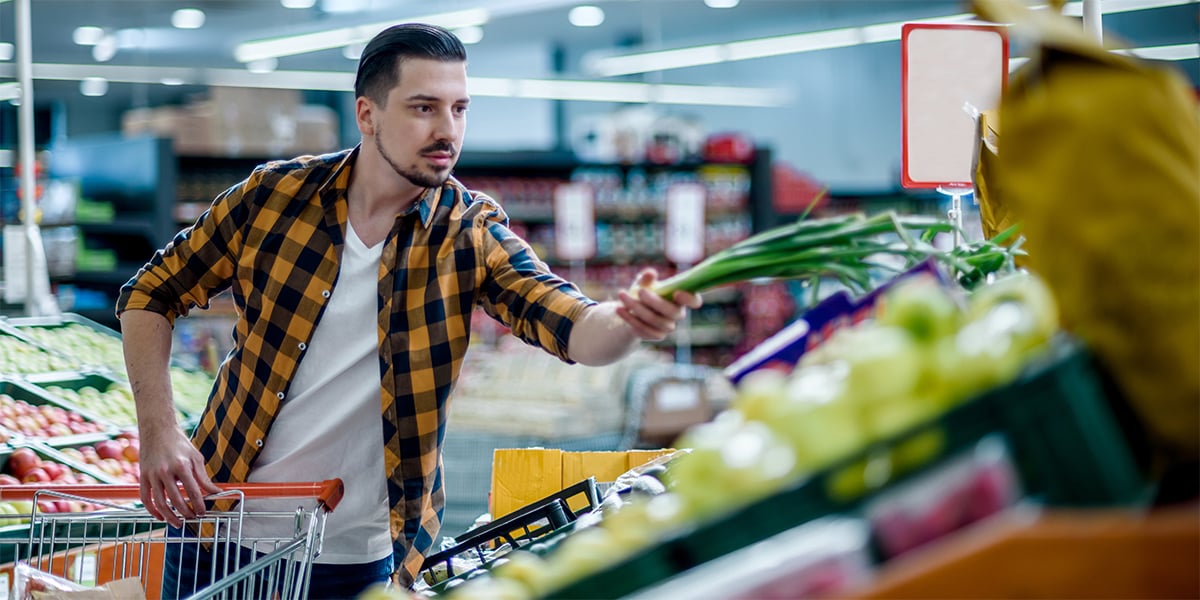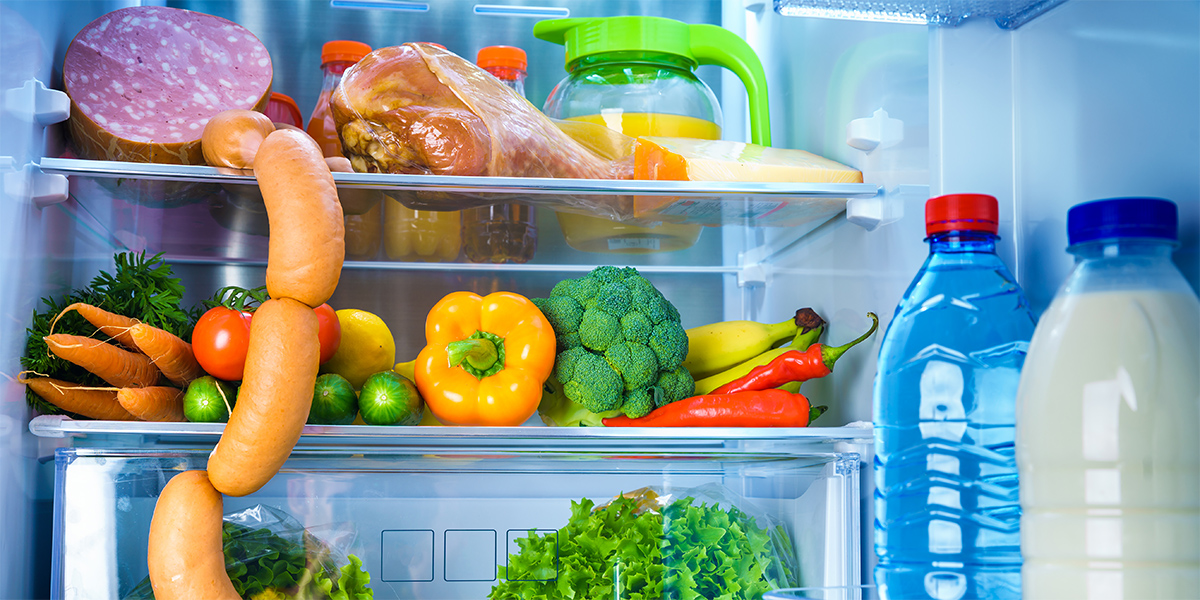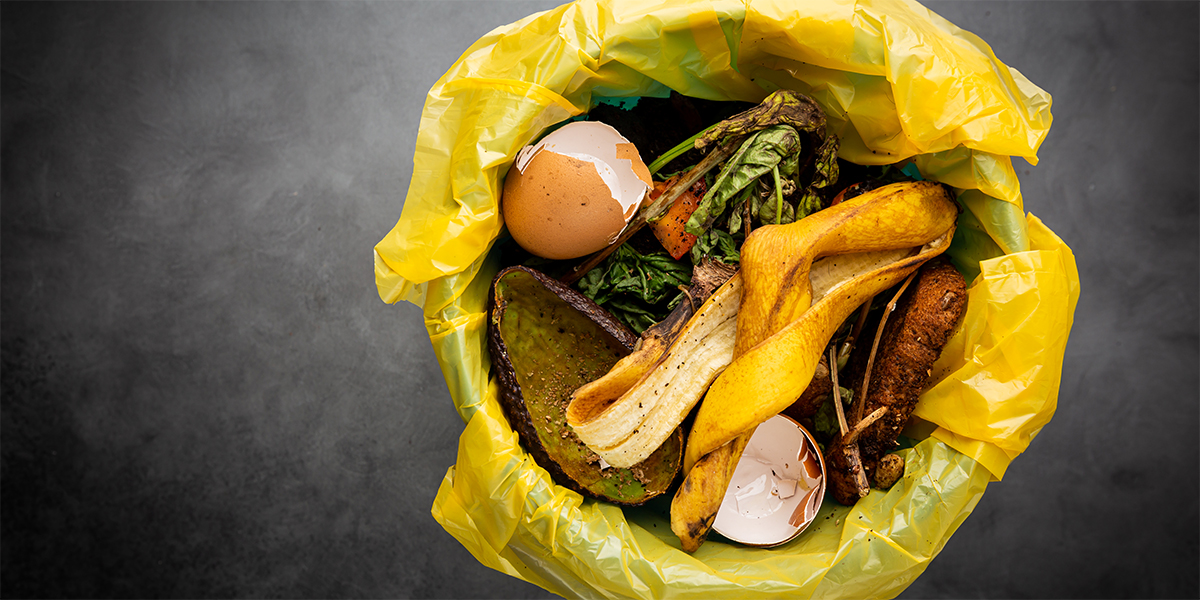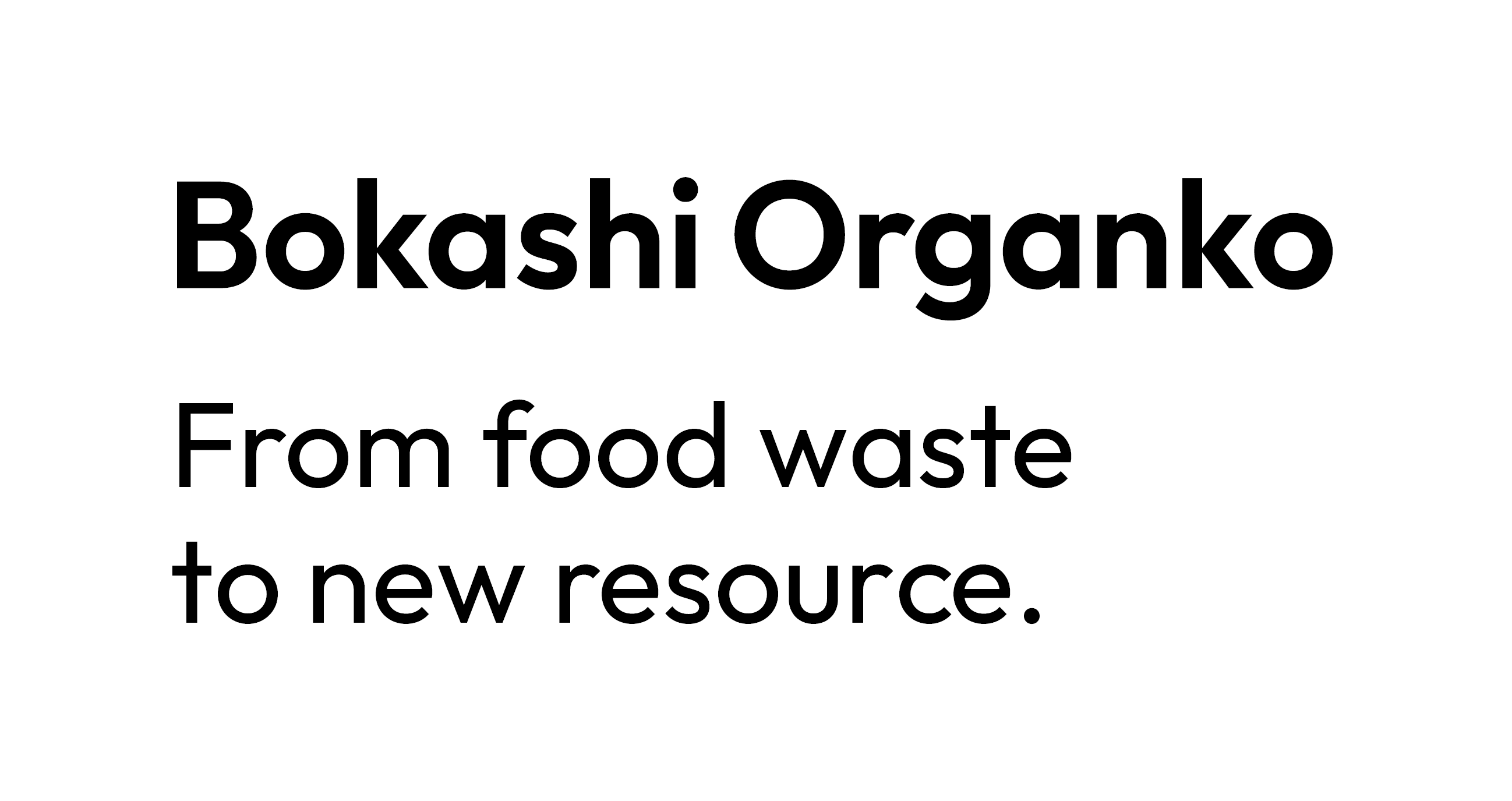Organic waste and food waste in particular are one of the largest greenhouse gas contributors. Moreover, around 60% of food waste is produced by households, which means that individuals can make a huge positive impact. As such, we decided to share with you seven little food waste solutions that are proven to make a difference. Ideally, you will implement each and every one of them. However, having at least a couple of them in place and using indoor composting as the last line of defense already makes a huge difference.
Food waste solutions start with proper shopping
Unless you are producing your own food, you need to make sure that you shop intentionally, which is the first of our seven food waste solutions. What do we mean by shopping intentionally? For starters, always know what exactly you need and buy only that. Hence, having a shopping list and sticking to it is the key. Furthermore, make sure to note on your shopping list the amount of each item you need.
Next, remember to account for the shelf life of the food you buy. It’s important to keep that aspect in mind and thus ensure that the food doesn’t go bad before using it. It is especially important to get rid of the “just in case” mentality when it comes to buying food with a short shelf life.
In addition, we recommend you avoid shopping for groceries when hungry. Your empty stomach will trick you into buying stuff that you don’t need - food that is not on your list. Moreover, it will also encourage you to buy more than you should.
Nonetheless, also avoid buying food just because it's discounted or because it looks good. Sure, if you need those items, make the most of the offered discount. However, people often buy discounted food in bulk just to have it go bad later on.
All-in-all, do not let your emotions control your shopping. Make a shopping list according to your plans and stick to it. Initially, you might be a bit off, but with some tweaks, you will be able to buy exactly what you need and plan your meals properly in no time.

Food waste solutions come in form of an organized fridge and pantry
In order to minimize the amount of food waste, make sure to always place fresh food at the back or at the button. That way, you will always use the food closer to its expiration date first. You’d be surprised how much food waste you can save with this simple trick.
Moreover, food waste solutions in the form of organizing your fridge, pantry, and freezer, also involve proper containers. After opening the original packaging of certain food products, it’s very important to store them properly. Thus, having a system of suitable containers in place makes a world of difference. Here, you normally need to ensure that containers are airtight. It also helps if their walls are transparent, so that you see what and how much is inside. Furthermore, proper food containers will also ensure that your food leftovers don’t go bad.
In addition, you can also use some sort of labeling system to level up your fridge/pantry organization.

Know your food
It’s very important that you know how long you can keep things in the fridge or freezer and how long the shelf life of your food is. Moreover, you also need to learn how to properly preserve different types of food if you want to be responsible when it comes to implementing food waste solutions. By knowing your food, you will properly preserve it and thus prevent it from going bad before you eat it.
When it comes to learning, all you need to know is one Google search away. The internet is your friend. By using reliable websites, such as foodsafety.gov, you can learn how to properly store all types of food.
The above three food waste solutions will ensure that you buy only the food you need. You will also organize your household properly by arranging and storing your food in the most optimal way. However, you also need to learn how to implement zero-waste cooking and what to do with leftovers if or when there’s too much food.
Take your food waste solutions further - implement zero-waste cooking
By implementing the above three food waste solutions, you should ensure that you only have the food you need in your household. As such, you now need to make sure that you successfully implement zero-waste cooking. This can be a bit tricky at the beginning; however, there're many folks who are pulling it off successfully.
The key tricks to successful zero-waste cooking are:
- Freeze your leftovers and make sure to use them on another occasion.
- Plan your meals ahead.
- Use your offcuts, scraps, excess, and leftover ingredients to make soups, stews, salads, and sides. With some creativity, you can easily make a delicious meal from the food that you’d otherwise waste.

Do the right thing when you eat out as well
When you eat out, do the best you can to eat everything you’ve ordered. However, in case the portion sizes surprised you, make sure to take your leftovers with you and eat them later or the next day. You can also give your leftovers away. That way you prevent restaurants from wasting that food. After all, most restaurants waste their leftovers.

Donate or swap food
Another of today’s food waste solutions comes from donating or swapping food. What do we mean by that? Well, if you have usable food that you know you won’t use before it goes bad, you should donate it. Of course, you can also try and swap it for food that you will use.
Sure, your options greatly depend on your location, however, with some quick research you should be able to find organizations or facilities that will happily accept your food. You can also make use of mobile apps (e.g.: Goodr, Food Rescue US, etc.) that help connect people with food to donate to people and organizations that need it.
The last resort among food waste solutions: composting
Composting is a great way to repurpose organic waste by converting it into high-quality compost. However, composting your food leftovers should only occur if you cannot use any of the above six food waste solutions.
However, as you prepare your meals, especially if you focus on eating healthy (mainly plant-based foods), you will deal with extra organic material. And, let’s be honest, you simply won’t be able to repurpose everything by cooking soups or stews. Hence, it’s important to have a system in place that will enable you to collect that organic material properly. This is where indoor composters, like Bokashi Organko bins, make all the difference.
By using the bokashi composting method, which is in fact fermentation, you get to efficiently convert organic waste into a bokashi cake and fermentation liquid. The former can be added to a traditional composting pile or dug into the soil, while the latter serves as a natural drain cleaner or an organic fertilizer (when diluted with water in a 1:200 ratio).
Moreover, bokashi indoor composters are environmental- and user-friendly. Compared to traditional composting, they produce 20-times fewer greenhouse gases. Moreover, since the bokashi bins are airtight, they don’t attract any pests and do not involve any bad smell. As such, they can be used in any kitchen for maximum convenience.
Key Takeaways
So, here are the seven little food waste solutions covered above:
- Shop intentionally
- Organize your fridge, freezer, and pantry
- Know your food
- Implement zero-waste cooking
- Don’t leave your leftovers in the restaurants
- Donate or swap usable food
- Implement indoor bokashi composting
Make sure to do the best you can to use the above seven food waste solutions to properly manage all your food. It may sound challenging at first, however, once you make a habit of it, it will take no extra time. Moreover, you’ll be proud of yourself for doing the right thing. Lastly, always keep in mind that together we can make a real difference.


